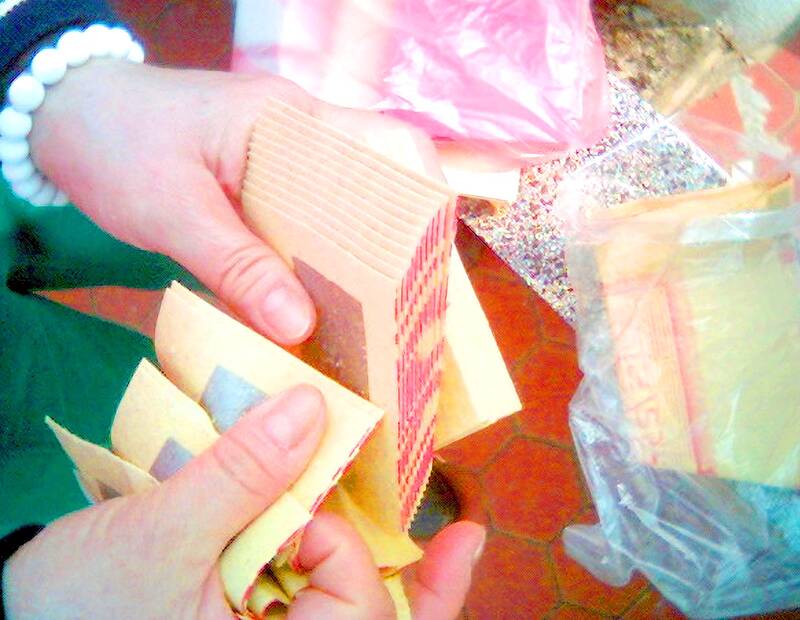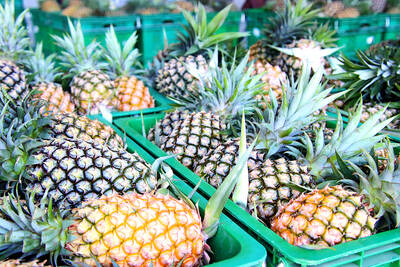對話 Dialogue
清清:清明節又快到了,你們家要不要去掃墓?
Qīngqing: Qīngmíng jié yòu kuài dàole, nǐmen jiā yào búyào qù sǎomù?

Photo: Wikimedia Common / 照片:Wikimedia Common 提供
華華:我們家上個週末就先去過了,怕這個禮拜人太多,整理起來比較麻煩。
Huáhua: Wǒmen jiā shàng ge zhōumò jiù xiān qù guò le, pà zhège lǐbài rén tài duō, zhěnglǐ qǐlái bǐjiào máfán.
清清:你們家祖先還有墓地嗎?我們家是放在塔位,只要帶供品和金紙去拜拜就好了。
Qīngqing: Nǐmen jiā zǔxiān hái yǒu mùdì ma? Wǒmen jiā shì fàng zài tǎwèi, zhǐyào dài gòngpǐn hé jīnzhǐ qù bàibài jiù hǎole.
華華:有啊!所以清明節都要去除草、清理環境。你打算哪天去?
Huáhua: Yǒu a! Suǒyǐ Qīngmíng jié dōu yào qù chúcǎo, qīnglǐ huánjìng. Nǐ dǎsuàn nǎtiān qù?
清清:今年清明節是在四月四號,不是五號,我們打算就四號那天去,然後和親戚一起幫小朋友們慶祝兒童節。
Qīngqing: Jīnnián Qīngmíng jié shì zài sì yuè sì hào, búshì wǔ hào, wǒmen dǎsuàn jiù sì hào nàtiān qù, ránhòu hé qīnqī yìqǐ bāng xiǎopéngyǒu men qìngzhù Értóng jié.
華華:兒童節也是你的節日啊!剛好一起過,哈哈哈!
Huáhua: Értóng jié yě shì nǐ de jiérì a! Gānghǎo yìqǐ guò, hāhāhā!
清清:沒關係,我喜歡過兒童節,當小孩比當大人開心多了!
Qīngqing: Méi guānxi, wǒ xǐhuān guò Értóng jié, dāng xiǎohái bǐ dāng dàrén kāixīn duōle!
華華:別忘了清明節要吃潤餅,好吃的東西能讓你的兒童節更快樂喔!
Huáhua: Bié wàngle Qīngmíng jié yào chī rùnbǐng, hǎochī de dōngxi néng ràng nǐ de Értóng jié gèng kuàilè o!
翻譯 Translation
Qingqing: Qingming Festival is coming soon. Is your family going to sweep the tombs?
Huahua: Our family already went last weekend. We were worried that there would be too many people this week, and it would be more troublesome to clean up.
Qingqing: Does your family still have a burial site for your ancestors? Our family places them in a columbarium, so we just need to bring offerings and joss paper to pay our respects.
Huahua: Yes. So for Qingming Festival, we have to go to clear the weeds and clean the area. When do you plan to go?
Qingqing: This year, Qingming Festival is on April 4, not the 5th. We plan to go on the 4th and then celebrate Children’s Day with our relatives.
Huahua: Children’s Day is also your holiday. It’s perfect to celebrate together, hahaha!
Qingqing: No problem, I enjoy celebrating Children’s Day. Being a child is much more fun than being an adult.
Huahua: Don’t forget to eat spring rolls during Qingming Festival. Delicious food can make your Children’s Day even happier.
生詞 Vocabulary
1. 掃墓 (sǎomù) tomb sweeping
2. 祖先 (zǔxiān) ancestor
3. 墓地 (mùdì) cemetery
4. 塔位 (tǎwèi) columbarium niche
5. 供品 (gòngpǐn) offerings
6. 金紙 (jīnzhǐ) joss paper, ghost money
7. 除草 (chúcǎo) weeding
8. 潤餅 (rùnbǐng) spring roll
教材音檔 Audio Files
國立清華大學華語中心提供
By National Tsing Hua University Chinese Language Center:

A: Recently, I’ve been seeing mosquitoes flying around in front of my eyes. The doctor said it’s the “flying-mosquito disease.” B: Flying mosquitoes? What a strange name. A: They’re actually called “floaters” in English, meaning floating debris. When fibrous substances in the vitreous body inside the eyeballs increase, floaters can appear in the visual field. B: Oh my goodness. Can you get rid of them? A: According to ophthalmologist Horng Chi-ting’s research, taking the enzymes of certain fruits is likely to help reduce floaters. A: 我最近一直覺得眼前有蚊子飛來飛去,結果醫生說是「飛蚊症」。 B: 飛蚊症?好奇怪的病名。 A: 英文名稱叫「floaters」, 也就是漂浮物的意思。 因為眼球的玻璃體中纖維化物質增多,導致視野出現漂浮物。 B: 天啊!要怎麼把蚊子趕走? A:

Bilingual Story is a fictionalized account. 雙語故事部分內容純屬虛構。 I stand by the Miluo River as dusk falls. The court betrayal is too much. I served Chu with loyalty. I forged alliances and fought corruption. But the whispers of jealous courtiers, the murmurs of treason, spoke louder. The king cast me out. The water looks calm. It promises peace. I step in. The river is cold against my legs. I hear shouts behind me — fishermen calling my name. I keep walking. The calls grow louder, but I do not turn around. The water rises to my chest. It pulls at me. I

In Taiwan, people can use a platform to rent a power washer for a weekend or share unused garage space for someone’s storage needs. These are examples of the sharing economy, a consumption model that has gained widespread adoption worldwide. This approach allows people to rent or share assets like cars, homes or even services, typically through online platforms. This innovative model poses a simple yet powerful question: why purchase infrequently used items when sharing is more practical? By making useful but idle resources accessible, the sharing economy turns them into sustainable opportunities. Internationally, platforms like Airbnb and Uber have popularized

A: What types of fruit enzymes should we take to help reduce eye floaters? B: According to a study published in the “Applied Sciences” journal by Taiwanese ophthalmologist Horng Chi-ting, pineapple, papaya and fig supplements can improve symptoms. A: Pineapples are in season now, so you should munch on more of those to get rid of floaters. B: Not quite. Enzymes can be damaged by our stomach acid if we eat the fruit directly. The doctor says taking fruit enzyme capsules is better for absorption. A: Most importantly, we should reduce our use of personal electronics to prevent floaters from